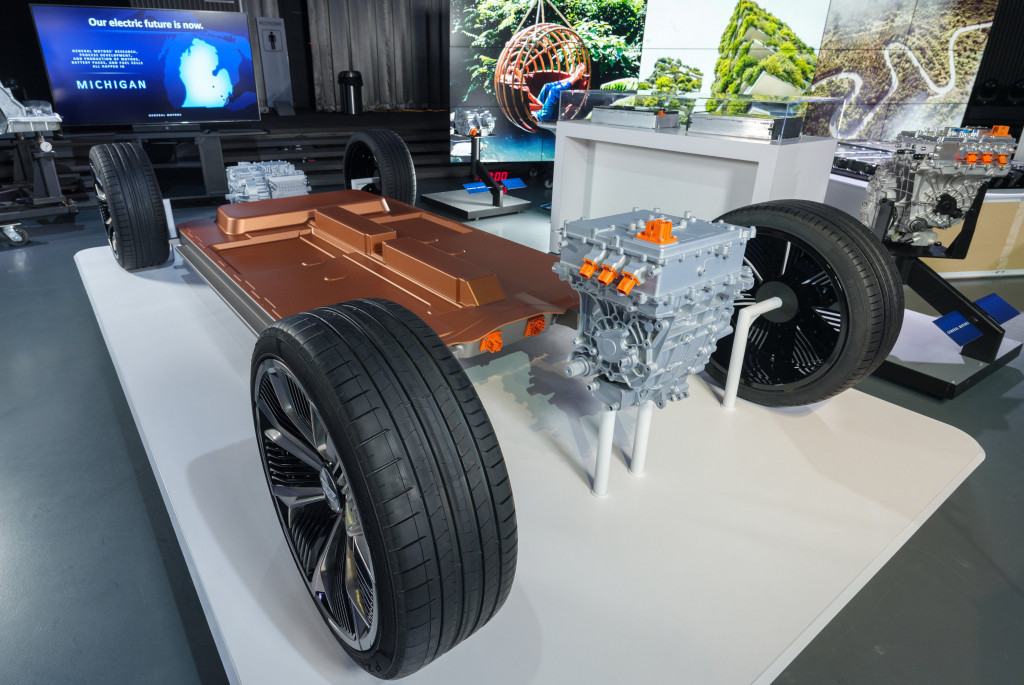General Motors and Honda announced Thursday plans to jointly develop two electric cars to be sold by Honda in North America starting from the 2024 model year.
GM will also build the vehicles, while Honda will be responsible for the interior and exterior designs and driving characteristics.
The vehicles will use a modular EV platform and batteries developed by GM. We're talking about the new BEV3 platform and Ultium batteries announced in March.
The BEV3 platform supports a variety of vehicle types ranging from small cars to large pickup trucks and SUVs. It also supports vehicles with outputs of more than 1,000 horsepower. Three that we know of are the upcoming GMC Hummer EV, Cadillac Lyriq, and Cruise Origin self-driving shuttle.
The Ultium batteries come in sizes ranging from 50-200 kilowatt-hours, the latter good for over 400 miles of range. The batteries also support 400- and 800-volt ratings. The latter means ultra-high charging speeds are possible, for example an 80-percent charge in about 20 minutes.

General Motors' BEV3 platform and Ultium batteries
The Honda vehicles will also integrate GM's OnStar telematics and Super Cruise semi-autonomous driver assist systems, the automakers said.
Honda has so far struggled in the EV space. After initially experimenting with the original fuel cell-electric FXC Clarity, the automaker late last decade launched a second-generation Clarity that offered a battery-electric option with a feeble 89 miles of range. Suffice it to say that the car was a flop. It was dropped from the market after two years.
The deal with GM will enable Honda to get a credible EV on the market quickly and at relatively low cost.
"This expanded partnership will unlock economies of scale to accelerate our electrification roadmap and advance our industry-leading efforts to reduce greenhouse gas emissions,” said Rick Schostek, executive vice president of American Honda.
The new deal is only the latest twist in the strengthening relationship between the GM and Honda. The automakers have previously collaborated on fuel cells and Honda is also a major investor in Cruise, GM's self-driving technology division.
